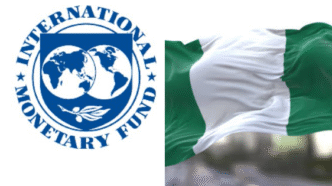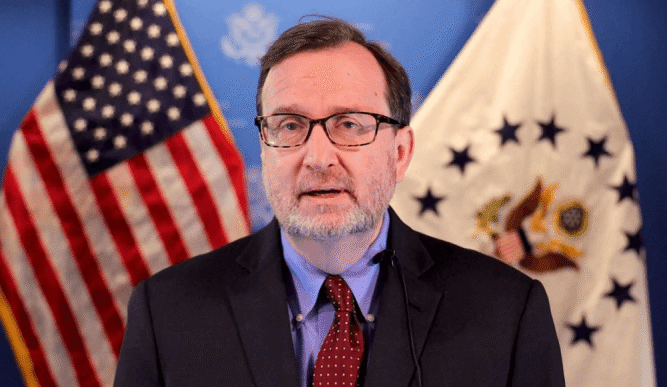Nigeria, Africa’s largest economy by population and GDP size, has been left out of the International Monetary Fund’s (IMF) latest list of the continent’s fastest-growing economies. The new data reveals that several smaller African nations—including Benin Republic, Côte d’Ivoire, Ethiopia, Rwanda, and Uganda—are now leading Africa’s economic growth trajectory, outpacing Nigeria in GDP expansion and economic reforms.
Nigeria Missing from Africa’s Growth Leaders
According to the IMF’s recent projections, Nigeria’s economy is expected to grow at about 3.3% in 2024, showing only modest improvement compared to previous years. In contrast, several African nations are experiencing growth rates ranging between 6% and 11%, driven by diversified economic structures, strong infrastructure investments, and improved business environments.
Countries like Benin, Côte d’Ivoire, Rwanda, Ethiopia, and Uganda have emerged as regional leaders in economic expansion, showcasing resilience and reform-minded governance.
Africa’s Top Performing Economies
Here’s a closer look at the top African economies leading the continent’s growth charge:
| Country | Projected Growth Rate (2024/2025) | Key Growth Drivers |
|---|---|---|
| Niger | ~11.2% | Booming oil and gas projects, high commodity prices |
| Senegal | ~8.2% | Diversified economy, infrastructure investment, stable policies |
| Libya | ~7.9% | Oil-sector recovery and gradual political stability |
| Rwanda | ~7.2% | Tourism rebound, strong governance, tech investment |
| Côte d’Ivoire | ~6.8% | Cocoa exports, infrastructure growth, industrial expansion |
| Ethiopia | ~6.7% | Manufacturing growth, reform momentum, improved stability |
| Benin Republic | ~6.4% | Port expansion, agricultural exports, fiscal discipline |
| Uganda | ~6.0–7.5% | Oil development, infrastructure projects, service-sector growth |
These countries are now seen as the “new engines” of African growth. Their success stories are driven by diversification away from commodities, strategic investments, and stable macroeconomic management.
Why Nigeria is Falling Behind
Despite its vast natural and human resources, Nigeria’s economy continues to struggle with multiple structural challenges. Several factors have combined to constrain its economic expansion:
1. Dependence on Oil
Nigeria’s heavy reliance on crude oil revenues makes it highly vulnerable to fluctuations in global oil prices. Although efforts to diversify are ongoing, the pace has been slow, leaving the economy exposed to external shocks.
2. High Inflation and Currency Instability
Nigeria’s inflation rate has remained in double digits, eroding purchasing power and weakening business confidence. The naira’s volatility, driven by foreign exchange scarcity and policy adjustments, continues to discourage investment.
3. Fiscal Constraints and Rising Debt
Public debt servicing consumes a large share of government revenue. This leaves limited fiscal space for infrastructure, education, or healthcare spending—sectors critical for long-term growth.
4. Policy and Implementation Gaps
Although the government has introduced reforms—such as fuel subsidy removal and exchange rate unification—implementation bottlenecks, regulatory uncertainty, and inconsistent policies have hindered economic results.
5. Weak Infrastructure and Power Supply
Chronic power shortages and poor transport infrastructure raise production costs, reducing competitiveness. Businesses often rely on diesel generators, increasing expenses and discouraging manufacturing growth.
6. Population Pressure
With over 220 million people and one of the fastest-growing populations in the world, Nigeria’s GDP growth lags behind population growth. This means per capita income remains stagnant, limiting improvements in living standards.
The Regional Context
Across Africa, growth momentum remains strong despite global headwinds. The African Development Bank (AfDB) projects Africa’s average GDP growth at 3.8% in 2024 and 4.2% in 2025, higher than global averages.
West Africa, where Nigeria dominates in size, is expected to grow by around 4%, but the region’s average is lifted by faster-growing neighbors such as Benin, Côte d’Ivoire, and Senegal.
Meanwhile, East African nations—including Rwanda, Uganda, and Ethiopia—continue to outperform the continental average, thanks to political stability, export diversification, and strong investment inflows.
Implications for Nigeria
1. Investment Attraction
Slower economic growth makes Nigeria less competitive compared to peers. Foreign investors often seek higher returns in faster-growing African markets, especially those with clear policy frameworks and stable currencies.
2. Rising Poverty and Inequality
With slow growth and high inflation, poverty levels are likely to remain high. Economic expansion that fails to outpace population growth cannot generate enough jobs or improve income distribution.
3. Macroeconomic Stability Concerns
Persistent fiscal deficits, limited reserves, and rising inflation pressures could hinder investor confidence and reduce Nigeria’s ability to borrow affordably on international markets.
4. Urgency for Reform
Experts argue that Nigeria must push ahead with structural reforms—particularly in taxation, public finance, and infrastructure—to boost competitiveness and productivity.
What Nigeria Needs to Do
For Nigeria to return to the list of Africa’s fastest-growing economies, several key reforms and policy priorities must be pursued:
1. Diversify Beyond Oil
Expanding into non-oil sectors such as agriculture, manufacturing, digital technology, and services is essential. A diversified export base can cushion against global oil price shocks.
2. Strengthen Fiscal Policy
Improving tax collection, curbing public spending inefficiencies, and prioritizing infrastructure investment will strengthen fiscal health and economic resilience.
3. Stabilize the Naira and Tame Inflation
Restoring confidence in the currency through transparent forex management and credible monetary policy will encourage trade and investment.
4. Boost Infrastructure Development
Reliable power, transport, and logistics systems are vital for industrial growth. Public-private partnerships should be expanded to close Nigeria’s infrastructure gap.
5. Improve the Business Environment
Simplifying regulations, protecting property rights, and ensuring policy continuity can help attract local and foreign investors.
6. Invest in Human Capital
Education, healthcare, and skills development should be central to Nigeria’s growth agenda. A more productive workforce will drive innovation and entrepreneurship.
7. Strengthen Governance and Anti-Corruption Efforts
Transparent and accountable governance remains critical to efficient resource use and investor confidence.
The Road Ahead
Nigeria’s exclusion from the IMF’s list of Africa’s fastest-growing economies is a wake-up call. The data shows that size alone does not guarantee growth; strategic reforms, diversification, and effective governance do.
While the country remains a key player in Africa’s economy, it risks being outpaced by smaller but more agile economies that are embracing change and reform. The path forward requires consistency, political will, and a commitment to inclusive growth that reaches all Nigerians.
If Nigeria can align its policy direction with its potential, the nation could still reclaim its place as one of Africa’s economic frontrunners. But without urgent and sustained reforms, it may continue to lag behind the continent’s new growth champions.













